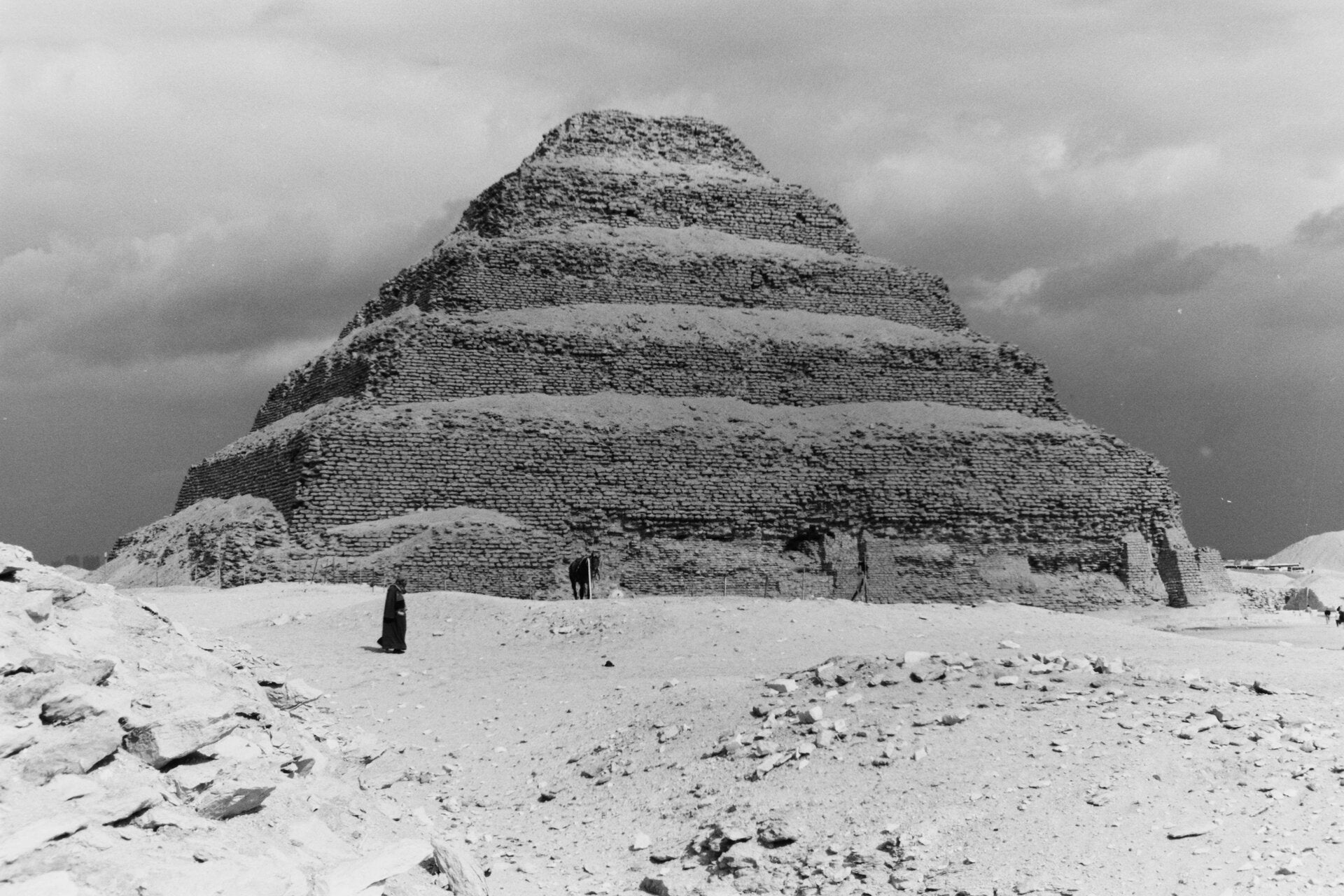In these pages, Eros’s expedition approaches Memphis, overlooking the new city. The first thing Eros and his companions see is the city’s central area.
Two tall stone needle columns are on opposite sides, with a path running down the middle. The path leads towards a large square foundation in the centre.
The city was busy. Men were building new structures. Women were doing their daily business, and children were playing.
Mud huts surrounded the city’s stone civic buildings. They had thatched roofs or canopies made from animal hide.
The district seemed to be at peace. The neighbours would rub shoulders without offending each other.
The resources were shared equally, and there was no squabbling for more than you needed. Food was at every corner.
As they turned a bend, food was displayed on tables: fruits like sweet dates for mates and green fat apples. Big, mouthwatering, red-centred watermelons were being handed out for dry throats.
Anyone could help themselves. Roasting on a wooden spit. Beefy ox, lamb not chopped, or many flapping fresh fish.
As the group approached the main building, four wide columns supported a flat roof, and just behind them, four slimmer columns supported a gable end canopy. However, taller columns supported a gable roof.
Around the building, people bustled, not so much rushing or hustling. They felt affection for their neighbour through sharing their labour.
Then, a few men led oxen carrying clay vases filled with water or containing the harvested crops of the season.
Just before passing the first four columns. On either side, two sphinxes sit proudly guarding the entrance to this magnificent structure.
Daphne told Eros, ‘It is a custom for all new visitors to bring the African Pharaoh of Egypt a gift. Do you have anything to offer?’
Quite surprised, Eros, Andromeda and Aphrodites looked at one another, with empty stares and nothing to declare.
Artemis turned to one of the six rowers. Retrieved a container balanced on a long staff on his shoulders, and then Artemis said, ‘You have been so good to us, Eros, when you saved us from those disgusting men.
The least we can do is give you each a gift for the pharaoh. Here, take one each. Myrrh, Frankincense and gold.’
All three took a gift, and Daphne added, ‘We will take our leave now, but if you need help or assistance, you can find us at the Wish One Well.’
Eros, Andromeda, and Aphrodites were even more surprised upon hearing this. Andromeda responded, ‘Do you know where the Wish One Well dwells?’
Daphne looked around. As if she were suspicious of anyone overhearing, she replied. ‘I will tell you a secret.’
Again, Daphne looks around apprehensively and then adds, ‘The Wish One Well is a traveller’s well. Where good fortune can turn into a wicked spell.
Then again, there is also the chance that when you try to sink an empty girba, it usually floats to the top.’
A girba is an Arabic word meaning waterskin or water canteen. It is made of black goat hair.
Like pushing a rubber duck to the bottom of bathwater, a girba will rise to the surface. In other words, things can only get better.
They said their goodbyes, apart from Hestia, who warmly hugged Eros. Then she whispered, ‘When you meet your equal. You will gain extra sensory abilities to project your thoughts into their mind. You also possess the all-seeing eye. It is the source or the origin of Egyptian religion, knowledge and wisdom.’
Then, she rushed off and waved goodbye before Eros could respond to her statement.
**The Technological Landscape of the Time**
Chariots were not invented then, and warfare was fought with a Flintstone’s club. But at this moment, there was peace. Additionally, at this point in ancient times, men did not ride horses. The fastest mode of transport was by river.
After Eros met with the Egyptian rulers, he learned that the African Pharaohs believed in a mighty pantheon. Eros disagreed that the Pharaohs were idols, but the Egyptians were none the wiser.
The Pharaohs were not concerned with Eros; he wasn’t influential, and more importantly. Like the Egyptians, Eros was unaware of his mental skills and connection to wisdom through the all-seeing eye.
Around the same period, men started farming and spent less time foraging. They discovered new things and had more time to think creatively.
They came up with ideas and notions, and then created items that people wanted. This occurred to Eros when he moved to Mesopotamia.
While living in the region, he became more fascinated with the stars and recorded their movements. Writing was a by-product of recording the activity in the cosmos.
Eros initially developed writing when he moved to Sumer, Mesopotamia, between 3,500 B.C. and 3,000 B.C.
- The earliest form of writing was called cuneiform, and metrology counting.
Eros also created symbolism, which the Neo-Babylonians used in abstract descriptions.
**Echoes of a Nomadic Life**
When Eros was not gazing at the stars at night, his nomadic lifestyle enabled him to see the landscape of a foreign land. The people’s cultures were similar in many ways and different in others.
Even the weird-looking creatures have familiar features, like African wildebeests, not cows, and zebras, not horses. The blue sky displayed colourful birds, although the song was wonderful, different, and unfamiliar, making you spring as you walked.
As Eros drives the herd of sheep and cattle to fresh pastures, the region near Sumer warms his heart. The fields are bountiful with luscious fruits, and the fertile land produces all the tribe’s needs.
The rolling hills were dense with life, bubby rabbits chewing on carrots, and fluffy white sheep looked like puffs of clouds on the ground. It’s an area he would call home because that’s where he liked to roam.
In the following chapter, Eros and his close family move to a new location.

Add comment
Comments